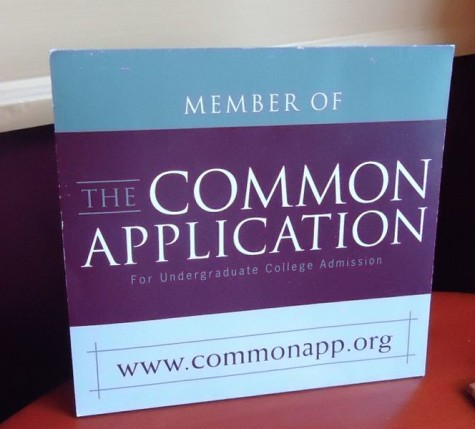College 101: What To Know Before You Go
February 26, 2015
The college search may seem intimidating and confusing with no clear place to start, but, with these tips, it will be easier to take the next step with confidence and excitement.
1. Have the right mindset.
While it may seem exciting to be on your own for the first time, it is important to go into college focused on furthering education. College is expensive and should not be taken advantage of. Going into college looking for the party life may lead to not staying enrolled in college for very long.
2. Don’t let senioritis get to you.
At this point in your secondary education, the end is so close, but don’t forget that before you can go to college, you have to graduate high school and get accepted to college. Also keep in mind that colleges look at transcripts throughout the year, so it is important to keep grades up.

3. Research where you want to go.
In your senior year you will most likely get bombarded with emails from colleges trying to get you to apply to their school. Without having an idea of where you want to go, this can quickly become overwhelming. Be sure to visit all the schools that interest you, and try to narrow it down to a top three or four.
4. Know your major.
If you have ever looked at the list of all the majors available, it can seem impossible to find the right one. Knowing what subjects you enjoy and excel in and using the process of elimination to find what you definitely do not want to do can help narrow your options. Having a major will also help in choosing a college, as it is vital that your college of choice offers your major.
5. Know your budget.

Knowing your budget can greatly narrow or expand your college options. If you get accepted to several colleges that you like and are having trouble making a decision, it may be useful to consider how much scholarship support you are offered. When considering budget, this can be the deciding factor of whether you would like to go to an in-state or out-of-state college as well.
6. Get to know your roommate.
Roommates can quickly become your best friend or your worst enemy depending on who you end up with. Make sure to meet your roommate ahead of time to make sure you both have the same goals and mindset. This will make for a much easier freshman year and can lead to new and long lasting friendships.
7. Stay motivated.
College brings all new challenges, so it is important to stay motivated in high school. If you stay motivated throughout high school and keep a good work ethic, it will be easier to keep that work ethic and motivation in college when you are faced with new experiences, responsibilities, and assignments.
8. Manage your stress and your time.

College is the first time you are on your own. The workload is heavier, social pressures are stronger, and there are no parents or teachers around to make sure your work gets done. It is helpful to avoid procrastination, and it could be useful to find some time for activities such as yoga to help relieve stress.
9. Stay organized.
Staying organized is the key to avoiding aggravation. Organization is the best way to keep on top of your work, to avoid losing papers and work, and to make sure you are not late. Being organized also helps to show that you care about your work and makes you look more prepared as a student and as a professional in your field of study.
10. Learn to communicate.
Professors can get you a long way in college, which is why it is important to form a connection with them. This connection will also make it easier to ask for help when you need it. In order to make this connection, you need to be able to communicate with your professors and others to be able to make friends and get to know your classmates.



